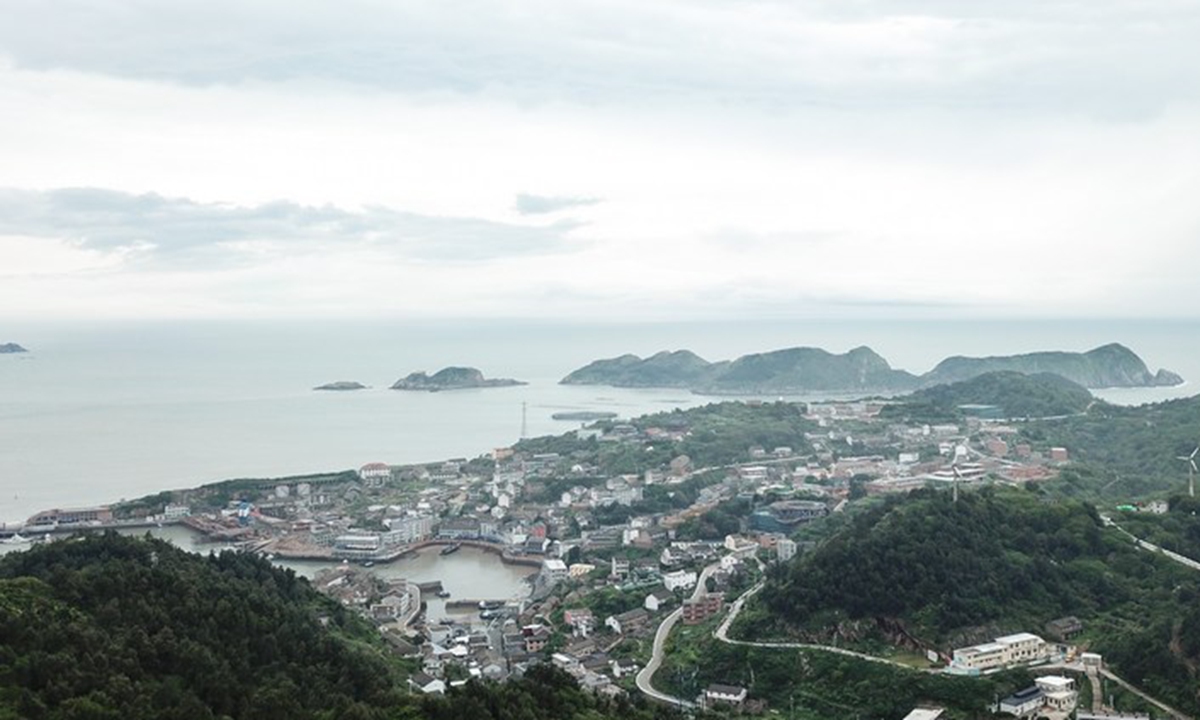
Aerial photo taken on April 19, 2019 shows the view of Dachen Islands in Taizhou, east China's Zhejiang Province. (Xinhua/Weng Xinyang)
Apart from turquoise waters, lush forests and mouthwatering seafood, many tourists are attracted to the Dachen Islands in the East China Sea by an all-electric hotel.
From cooking and lighting to heating and air conditioning, the Youjia hotel is now entirely powered by electricity derived from renewable sources, said its owner Shi Zhaorong, 60.
"One-night stay in Youjia could save consumption of approximately 870 grams of standard coal," said Shi, who opened the homestay on Dachen around five years ago. Dachen, administered by Jiaojiang District of Taizhou City, east China's Zhejiang Province, mainly consists of two islands.
Things were, however, completely different before 2019. Most of the functions of Shi's homestay were powered by gas, which was stored in tanks and shipped to the islands from Jiaojiang District, over 50 km away on land.
"When bad weather hit the area or gas stock on the islands ran out, we were left without energy supply for cooking, bathing and lighting," Shi recalled.
In 2019, with support from the local power department, Shi began to switch to electricity from gas for power supply. "Electricity has not only improved our service quality but also reduced operating costs by 20 percent," he said.
The transition proved to be fruitful, prompting many homestays to follow suit. Currently, there are a total of 17 all-electric hotels in Dachen, contributing to the development of the islands' zero-carbon transition.
Cutting carbon emissions is critical to achieving the zero-carbon goal, but Dachen has gone further. Apart from ubiquitous electric buses and shared bikes, tourists to the islands will also see 34 wind turbines, which can generate more than 60 million kilowatt-hours of electricity on average annually.
The islands are rich in wind energy resources with an average annual wind speed of 6.8 meters per second. A comprehensive hydrogen energy utilization demonstration project was put into operation in Dachen in July this year, which can convert the electricity generated by the wind turbines into hydrogen storage, and turn the hydrogen into electricity and heat when needed.
"The project utilizes abundant wind energy on the islands to electrolyze water and obtain hydrogen from the process," said Zhang Chi, who works with Taizhou power supply company under State Grid Zhejiang Electric Power Co., Ltd. "There is no carbon emission in the whole process, so it is a high-tech and eco-friendly technology."
The hydrogen utilization system can be regarded as a power bank. During the peak of electricity consumption and power grid maintenance on the islands, the hydrogen will be converted into electricity to meet the demand, Zhang noted.
"In the 1950s, a group of young people set foot on Dachen to cultivate the barren land, and now the islanders, with the same indomitable spirit, are blazing a new path to make their hometown more eco-friendly and sustainable," said Wang Ning, an official with Dachen Township.
